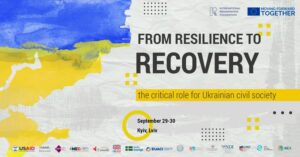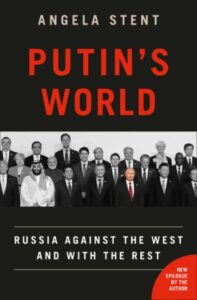 U.S. analysts Michael Kofman and Rob Lee argue in a lengthy posting on War on the Rocks that Ukraine’s patient tactics to some extent have been misunderstood and that its strategy of “advance[ing] incrementally with small units played to its strengths”, The Guardian reports. Unless there is a sudden political change in Moscow (or Kyiv), the war is likely to continue as it has done, meaning that what Ukraine particularly needs from the west is what they describe as “the necessary enablers – above all, artillery ammunition”.
U.S. analysts Michael Kofman and Rob Lee argue in a lengthy posting on War on the Rocks that Ukraine’s patient tactics to some extent have been misunderstood and that its strategy of “advance[ing] incrementally with small units played to its strengths”, The Guardian reports. Unless there is a sudden political change in Moscow (or Kyiv), the war is likely to continue as it has done, meaning that what Ukraine particularly needs from the west is what they describe as “the necessary enablers – above all, artillery ammunition”.
Despite the disappointing performance of our sanctions so far, the Russian economy remains an important vulnerability for the Kremlin, Walter Russell Mead writes for The Wall Street Journal. As analyst Edward Luttwak points out, we can accelerate the degradation of Russia’s economy by focusing on critical components that Russia badly needs but can’t easily make or source. The Russian gas industry, for instance, depends on a range of cold-weather equipment that is made in the West.
Russia’s strategy to globalize the war has multiple dimensions, according to analysts Michael Kimmage and Hanna Notte:
- In its economic relations, Moscow has capitalized on the opportunism of countries indifferent to the conflict: the Kremlin aims to integrate Russia into non-Western networks of trade, defense, and commerce.
- Ideologically, Russia blames the war on Western deceit and Ukrainian betrayal, leveling accusations of hypocrisy against the United States and its allies.
- Diplomatically, Russia and the West are carrying the conflict into international institutions. Whether in the UN Security Council or at the International Atomic Energy Agency, whatever modus vivendi there had once been between Russia and the West has come apart.

Credit: NDI
By nurturing apathy and frustration with the war in non-Western capitals, Moscow hopes that other countries will join its ranks or at the very least distance themselves from the West, they write in How Russia Globalized the War in Ukraine, an article for Foreign Affairs:
Putin’s goal is not to create vulnerability in a specific area. Rather, he aims to foster global dependence on Russia’s policy decisions. These elements of global influence matter more to Putin than his good reputation in Africa or the Middle East, where Moscow’s withdrawal from the Black Sea Grain Initiative dismayed many countries.

 There is one area where the US and Europe should be doing more, and that is sustained outreach to the Global South,
There is one area where the US and Europe should be doing more, and that is sustained outreach to the Global South, 





